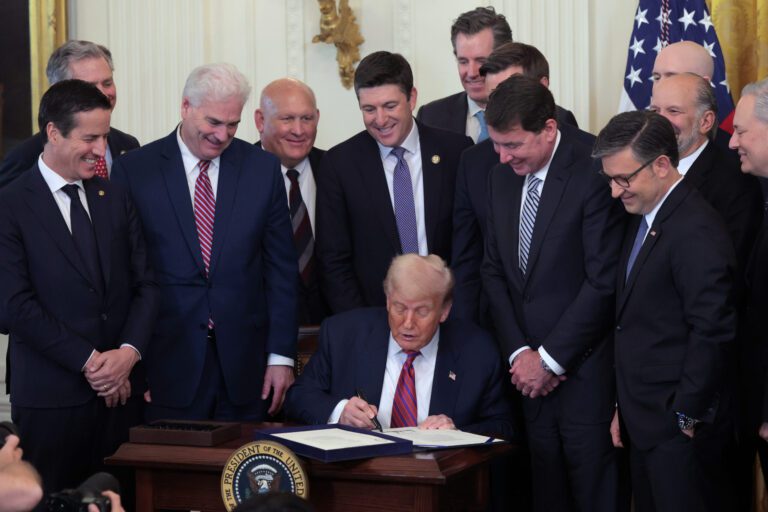President Trump Signs Historic GENIUS Act: A Game-Changer for the Cryptocurrency Industry
President Trump has officially signed into law the GENIUS Act, marking a pivotal moment in the regulation of the cryptocurrency industry. This landmark legislation primarily addresses stablecoins, a type of digital currency closely tied to traditional assets such as the U.S. dollar.
What is the GENIUS Act?
The GENIUS Act aims to provide a clear regulatory framework for stablecoins, enabling a more structured approach to the burgeoning cryptocurrency market. In President Trump’s words, this act opens the door to a "new frontier" in financial technology, potentially representing "the greatest revolution since the birth of the internet."
Key Features of the GENIUS Act:
- Regulatory Clarity: It establishes a straightforward regulatory environment for dollar-backed stablecoins, enhancing their legitimacy.
- CFTC Empowerment: The act empowers the Commodities Futures Trading Commission (CFTC) with increased authority to oversee the crypto industry.
- SEC Limitations: It restricts the Securities and Exchange Commission (SEC) from extending its reach against cryptocurrency firms, thereby easing regulatory pressure.
- Banking Opportunities: The act facilitates the issuance of stablecoins by banks and other financial institutions, streamlining processes for entry into the market.
Quotes from Key Figures
During the signing event, President Trump humorously noted, “They named it after me, you know,” referring to the GENIUS Act. He emphasized the law’s potential to "unleash the immense promise of dollar-backed stablecoins."
David Sacks, the crypto advisor within the Trump administration, expressed optimism by stating that this law will enable "American dominance in the crypto industry by creating clear rules of the road." He further hailed it as a moment of "huge promises made, promises kept" for the Trump administration.
Regulatory Timeline
Following the law’s enactment, regulators are required to devise specific regulations for the crypto industry within six months. This rapid timeline is expected to catalyze further advancements in the sector.
Opposition and Concerns
Despite the excitement surrounding the GENIUS Act, it has faced criticism:
- Conflict of Interest: Some Democratic lawmakers have raised concerns about potential conflicts of interest given that the Trump family has investments in cryptocurrency. Earlier this year, they launched their own stablecoin through World Liberty Financial.
- Regulatory Authority: Maxine Waters, the ranking member of the House Financial Services Committee, argued that the bill fails to provide the federal government with sufficient authority to regulate the cryptocurrency market effectively.
Conclusion
The GENIUS Act stands as a groundbreaking step towards the regulation of the cryptocurrency industry, particularly for stablecoins. As the market evolves, the implications of this legislation could set the foundation for the future of digital currencies in the United States.
For further insights into cryptocurrency legislation and its impacts, visit CoinDesk or check out CryptoSlate.
By integrating strong keywords and external links, this overview of the GENIUS Act not only informs but also enhances online visibility and accessibility for those interested in the evolving landscape of cryptocurrency regulation.


